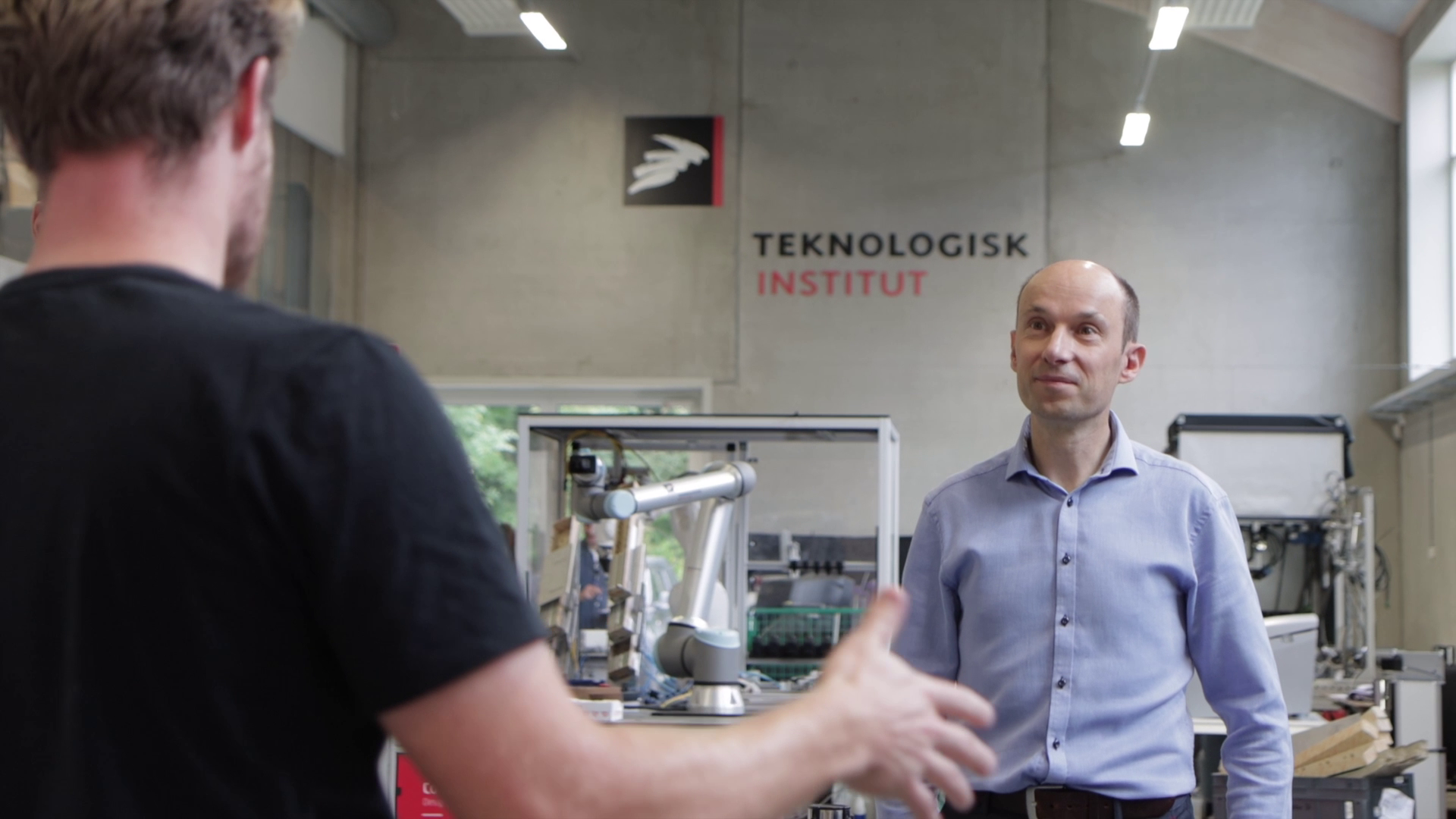A university idea became an industrial machine: Now AutoShape graduates from the incubator

After two years in the robotics incubator funded by the Odense Robotics StartUp Fund at the Danish Technological Institute, AutoShape has developed a machine that combines laser cutting, forming, and engraving in one integrated solution. The goal is to reduce costs, complexity, and manual handling in the production of small metal components.
Producing small metal parts is often a time-consuming and complex process. It involves cutting, bending, engraving, and measuring – typically across several machines and with specialised tools and skilled operators involved throughout.
This is precisely the challenge that Danish company AutoShape has set out to solve with a unified machine that reduces both time, equipment needs, and process complexity.
“To manufacture these components the traditional way, you’d typically need several machines, specialised tools, and a skilled operator. We’re building a machine that lets you take your CAD model, produce the part directly, quality check it – and hold it in your hand a couple of hours later,” explains Morten Kristiansen, CEO of AutoShape.
From research to incubator
When AutoShape was accepted as the first startup in the incubator, the project was still rooted in research at Aalborg University, where Morten Kristiansen is an associate professor. The machine existed only as a concept, and the company had not yet been formally established.
Over the course of two years in the incubator, the idea was gradually transformed into a working prototype. The team expanded, and the transition from research project to startup began to take shape. Along the way, AutoShape opened an office and showroom at Business Park Nord, Støvring.
“It’s been incredibly valuable to have access to sparring and someone to discuss things with along the way. We’ve also received input that pushed us to think differently than we typically do in academia. In the beginning, it was very much still a research project that needed to be commercialised and that required us to start thinking more in terms of business,” says Morten Kristiansen of the incubator experience.
Advanced technology in a unified solution
The machine is based on several integrated laser processes, including cutting, forming and engraving, and is capable of producing complete metal components without manual handling between steps. Quality control is also built into the process.
The technology is particularly well suited to industries that demand high precision and flexibility, such as electronics, medtech, and fine mechanics. It also holds potential for specialised sectors like aerospace and drone manufacturing.
“It’s extremely complex, and the technology is extensive, because we’re building a completely new type of machine that doesn’t exist yet. We do use standard components, but there’s still a lot of development required – and on top of that, there’s also a significant amount of software that needs to be developed to make it all work together,” says Morten Kristiansen.
Debut at HI Industry Fair
After two years of development, AutoShape presented its machine at the HI Industry Fair in Herning – an important milestone for the team. The event exceeded expectations and even led to a third-place finish in the IDA Startup Competition, where AutoShape pitched their technology to a jury of experts, competing against nine other nominees.
And the company clearly feels the demand for the technology they’ve developed. Market interest confirms that their solution addresses a real need in the industry.
“We can clearly sense that companies find this technology highly interesting. And those who engage early on are able to benefit from the fact that we still have the flexibility to tailor the technology to their specific needs, before things become more fixed in the way we work,” Morten Kristiansen says.
With the momentum from the fair and growing interest from the market, AutoShape is now well-positioned to bring its technology into the real world.

